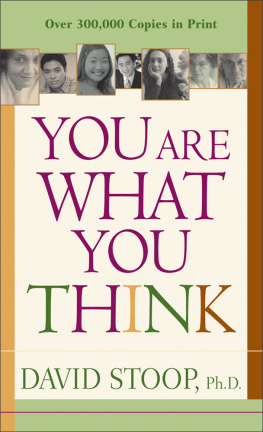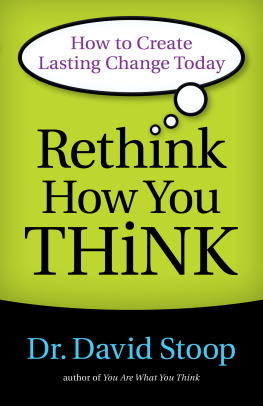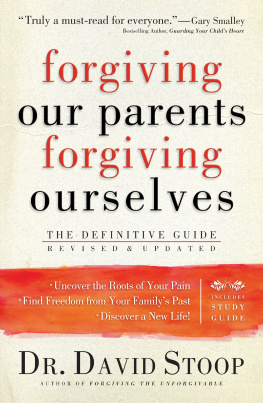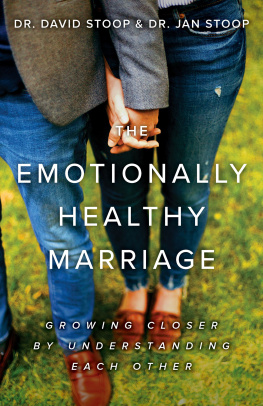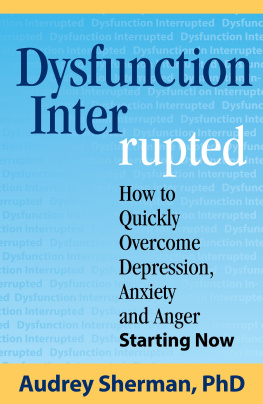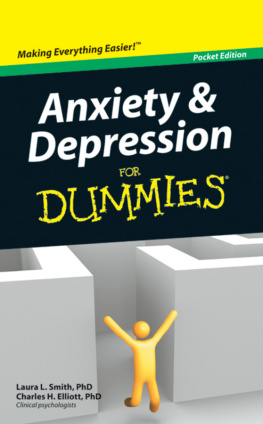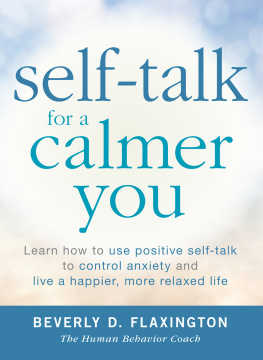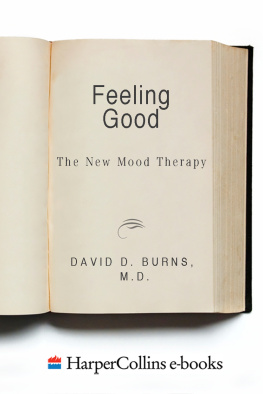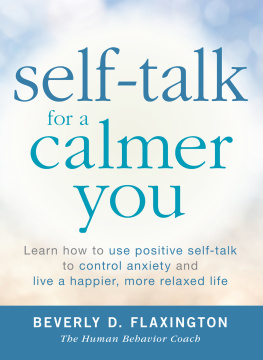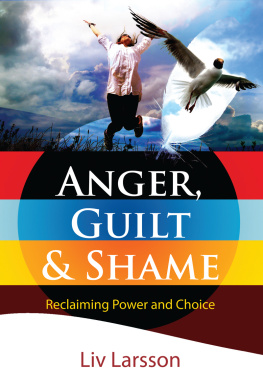David Stoop - You Are What You Think
Here you can read online David Stoop - You Are What You Think full text of the book (entire story) in english for free. Download pdf and epub, get meaning, cover and reviews about this ebook. year: 2003, publisher: Baker Publishing Group, genre: Religion. Description of the work, (preface) as well as reviews are available. Best literature library LitArk.com created for fans of good reading and offers a wide selection of genres:
Romance novel
Science fiction
Adventure
Detective
Science
History
Home and family
Prose
Art
Politics
Computer
Non-fiction
Religion
Business
Children
Humor
Choose a favorite category and find really read worthwhile books. Enjoy immersion in the world of imagination, feel the emotions of the characters or learn something new for yourself, make an fascinating discovery.
- Book:You Are What You Think
- Author:
- Publisher:Baker Publishing Group
- Genre:
- Year:2003
- Rating:5 / 5
- Favourites:Add to favourites
- Your mark:
- 100
- 1
- 2
- 3
- 4
- 5
You Are What You Think: summary, description and annotation
We offer to read an annotation, description, summary or preface (depends on what the author of the book "You Are What You Think" wrote himself). If you haven't found the necessary information about the book — write in the comments, we will try to find it.
You Are What You Think — read online for free the complete book (whole text) full work
Below is the text of the book, divided by pages. System saving the place of the last page read, allows you to conveniently read the book "You Are What You Think" online for free, without having to search again every time where you left off. Put a bookmark, and you can go to the page where you finished reading at any time.
Font size:
Interval:
Bookmark:


1982, 1996 by David Stoop
Published by Revell
a division of Baker Publishing Group
P. O. Box 6287, Grand Rapids, MI 49516-6287
www.revellbooks.com
Ebook edition created 2013
Previously published in 1982 and 1996 under the title Self-Talk: Key to Personal Growth
All rights reserved. No part of this publication may be reproduced, stored in a retrieval system, or transmitted in any form or by any meansfor example, electronic, photocopy, recordingwithout the prior written permission of the publisher. The only exception is brief quotations in printed reviews.
ISBN 978-1-58558-137-5
Library of Congress Cataloging-in-Publication Data is on file at the Library of Congress, Washington, DC.
Unless otherwise indicated, Scripture is taken from the Revised Standard Version of the Bible, copyright 1946, 1952, 1971 by the Division of Christian Education of the National Council of the Churches of Christ in the USA. Used by permission.
Scripture marked TLB is taken from The Living Bible, copyright 1971. Used by permission of Tyndale House Publishers, Inc., Wheaton, IL 60189. All rights reserved.
Scripture marked KJV is taken from the King James Version of the Bible.
Scripture marked PHILLIPS is taken from the Phillips version of the Bible. Used by permission.
The cartoon on page 123 is 1979 by the Universal Press Syndicate. All rights reserved.
It is to Jan, with love,
that I dedicate our book
THE SEARCH FOR SELF-CONTROL
A man without self-control is as defenseless as a city with broken-down walls.
Proverbs 25:28 TLB
A ttitude is everything! Every motivational speaker underlines that message. All coaches hammer that truth home to their players. Anyone working with other people knows how important attitude is in determining the successful outcome of any task. The apostle Paul emphasized the importance of our attitude when he wrote, Now your attitudes and thoughts must all be constantly changing for the better (Eph. 4:23 TLB ).
The importance of attitude seems so clear to us when we look at other people. How often do we think or say about one of our children or our husband or wife, They have an attitude problem! We see people who have the greatest intentions and whose motives are spiritually and morally sound but who cannot succeed because their attitude is negative and self-critical.
Paradoxically, we want Gods very best for ourselves and our relationships. We have right and good intentions; and we prayerfully and thoughtfully set goals for ourselves. But then we fall again and again into the same routines and patterns of behavior that keep us right where weve always beenwhere we dont want to be. Experience has proven over and over that good intentions and the best goal-setting skills simply arent enough.
Knowledge is never enough either. Lots of people have all kinds of impressive credentials and have accumulated volumes of important knowledge and skills, but they have never really been able to get their lives moving in any direction. We look at them and shake our heads, thinking of all that wasted potential, and wonder why they put all that effort into getting ready when it appears to everyone watching that they dont intend to ever get started.
The one thing, from a human perspective, that seems to make the difference between those who succeed and those who fail is attitude. No matter who you are, attitude really is everythingits what makes the difference in every aspect of life.
OK, but even if we agree that attitude is everything, it still sounds so superficial. When I face a problem, we protest, I immediately want to work on my goals or on expanding my knowledge base. It cant be as simple as changing my attitude! What we can so clearly see as the issue in someone else just doesnt seem to be that evident, or important, when we look at ourselves. Perhaps its because our own attitudes are so much a part of us that we really cant identify them. Or if and when we do recognize a problem with our attitude, it just frustrates us because we dont know how to change it.
Our World Feels Out of Control
All too often our attitudes are the by-product of our experiences in an out-of-control world. And when pressed to change our attitudes, our internal response may be, How? I feel so helpless, so out of control! And really, how can a person feel in control when the newspapers confront us every day with increasing evidence that the world out there is out of control? Prices soar unchecked. The national debt reaches beyond the incomprehensible figure of a trillion dollars. The environment is rapidly being depleted of its resources. The air is polluted, water is contaminated, and our food increasingly needs enrichment.
But the evidence of an outer world beyond our control pales in significance when compared to our inner feelings of not being able to control our own personal lives. Every day I encounter this in my work with people.
Families are out of control. Divorces have outnumbered marriages for several years. Young adults shy away from marriage on the premise that they cant find any examples of happily married couples. Children from fractured homes feel divided and powerlesshow can a child possibly keep track of four sets of grandparents and all the step-relationships within an ever-changing family structure? Too many children grow up in a chaotic world and know they are out of control.
How do kids cope with these feelings? Many, sadly, slip into the drug culture. The statistics are frightening. Did you know that the money generated through the sale of drugs tops that of even our countrys largest corporations?
Because of the chaos and stress, many of us end up not feeling well. Over 40 million Americans suffer from allergies; and 30 million suffer from sleep-onset insomnia. Its estimated that 25 million people in the United States are afflicted with hypertension (high blood pressure). Around 20 million of us have ulcers, and too many millions suffer from jagged nerves to the point of needing tranquilizers. And more than that, one out of three persons has a weight problem, creating unhealthy cycles of weight loss and gain.
Health specialists used to argue over which diseases could be classified as psychosomatic (beginning in the mind). Today most medical research indicates that between 75 to 90 percent of all illness is caused by the stresses of modern life. In fact, many researchers no longer ask which diseases are stress related; instead, they ask how much of every disease is stress related.
We can numb our pain, distract ourselves from it, project it, and try to deny its even there; but none of these escapes can truly relieve our pain. Only an honest understanding of ourselves and our God can do that.
Understanding Our Emotions
Psychologists have traditionally agreed that we all experience three basic emotions: love, anger, and fear. We can liken these to the three primary colors: red, yellow, and blue. Every color, shade, and hue we see is one of these three primary colors or some combination of them. In the same way, every feeling we experience in life is one of the primary emotions or, more likely, some combination of them.
To better understand the three primary emotions, it helps to see that each one has movement and direction. Love is the emotion that always moves us toward someone or something. When I love someone, I want to be with that person. I move toward him or her. I want to hear his or her voice and feel his or her touch. If I am in love with somethingfor example, chocolateI find that I always end up at the candy store whenever I go to the mall. Love for chocolate draws me there, and I may not even be aware of it until my senses tell me I am there.
Font size:
Interval:
Bookmark:
Similar books «You Are What You Think»
Look at similar books to You Are What You Think. We have selected literature similar in name and meaning in the hope of providing readers with more options to find new, interesting, not yet read works.
Discussion, reviews of the book You Are What You Think and just readers' own opinions. Leave your comments, write what you think about the work, its meaning or the main characters. Specify what exactly you liked and what you didn't like, and why you think so.

